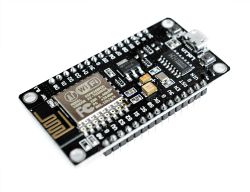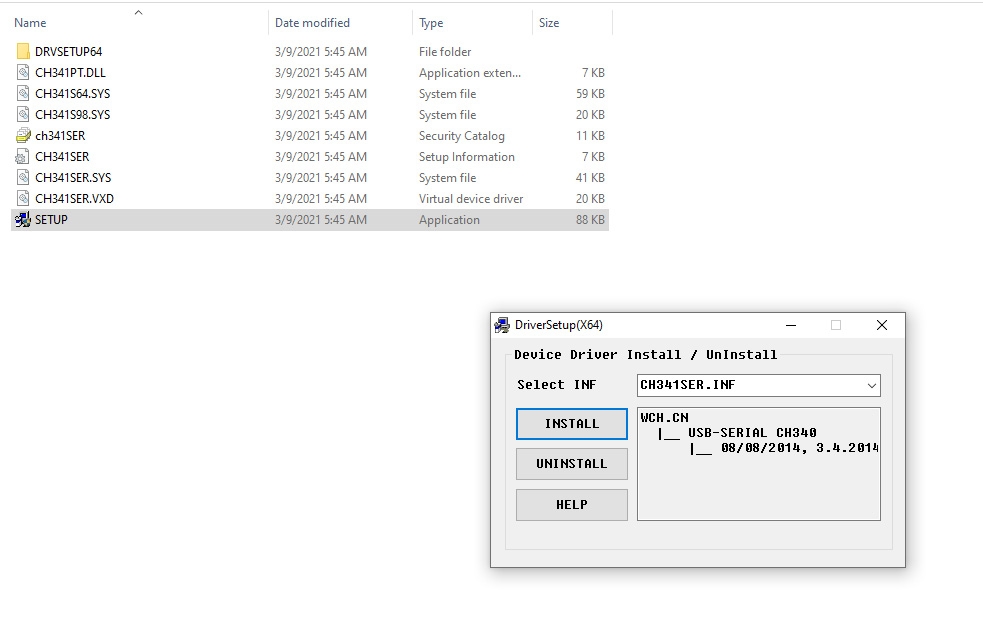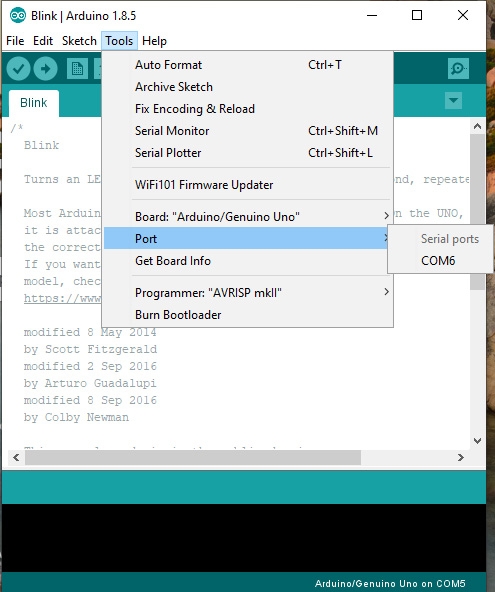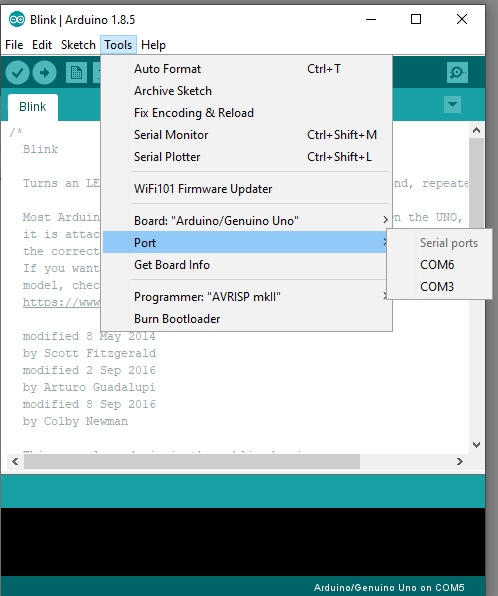Search for your product name or keyword, or use the product categories below
NodeMcu V3 LUA ESP8266 ESP-12E CH340G WIFI Internet of Things Development Board
 NodeMCU is an open-source firmware that helps you to prototype your IOT product with code like Arduino, but interactively in a Lua script.
NodeMCU is an open-source firmware that helps you to prototype your IOT product with code like Arduino, but interactively in a Lua script.
This NodeMCU Development Kit is based on the ESP8266 and integrates GPIO, PWM, IIC, 1-Wire and ADC all in one board.
Features:
- LoLin V3 version
- CH340G USB Interface
- Wireless 802.11 b / g / n standard
- Support STA / AP / STA + AP three operating modes
- Built-in TCP / IP protocol stack to support multiple TCP Client connections (5 MAX)
- D0 ~ D8, SD1 ~ SD3: used as GPIO, PWM, IIC, etc., port driver capability 15mA
- AD0: 1 channel ADC
- Power input: 4.5V ~ 9V (10V MAX), USB-powered
- Continuous Current: ≈70mA (200mA MAX), Standby: <200uA
- Transfer rate: 110-460,800bps
- Support UART / GPIO data communication interface
- Remote firmware upgrade (OTA)
- Support Smart Link Smart Networking
- Working temperature: -40 ℃ ~ + 125 ℃
Reference:
Arduino Software (IDE) download link: http://envistia.info/arduinoide
NodeMCU Firmware & Development Kit Website: http://envistia.info/nodemcu
ESP8266 Community Forum: http://envistia.info/esp8266-forum
How to program the ESP8266 using Arduino IDE tutorial videos and websites:
http://envistia.info/youtube-nodemcu-blink
https://envistia.info/electromania-how-to-program-esp8266 (Electromania website)
http://envistia.info/youtube-nodemcu-gettingstarted
https://envistia.info/youtube-nodemcu-gettingstarted2
The CH340G USB drivers may need to be installed on your computer before using this NODEMCU board with the Arduino IDE. If the Arduino IDE cannot communicate with your board, it is probably because the CH340G driver is not installed on your computer.
To install the CH340G driver on your computer:
The CH340 USB IC is made by WCH. You can find the latest version of their drivers in their English translated website here:
http://www.wch-ic.com/downloads/CH341SER_ZIP.html
Click on the “download” button on the WCH page to download the ch341ser.zip file to your computer.
Unzip (extract) the ch341ser.zip file.
Run the Setup application in the CH341SER folder of the unzipped file. See the screenshot below:

Click the “Uninstall” button first to remove any old versions, then click on the “Install” button.
CH340G Driver Verification for Windows:
To verify that your CH340G driver is working, you should see a difference in the Windows Device Manager and Arduino IDE Ports after plugging the NODEMCU board with a CH340 into a USB port on your computer.
Device Manager
To check that the CH340 associates to a COM port, open the Windows Device Manager. You can click the Start or ⊞ (Windows) button and type “device manager” to search for the application.
After opening the Device Manager, you will need to open the Ports (COM & LPT) tree. The CH340 should show up as USB-SERIAL CH340 (COM##). Depending on your computer, the COM port may show up as a different number.

Arduino IDE
If you have the Arduino IDE installed, you should also see a change in the number of available COM Ports (you may need to restart the Arduino IDE for the board to populate). Without the CH340 connected to your computer, in the IDE click on Tools > Port. Take note of the Serial Ports available:

Connect the NODEMCU board with the CH340 to your computer’s USB port. Click somewhere else on the screen for the menu to refresh itself. Then go back to Tools > Port. A new COM port should appear. By process of elimination, the CH340 should have associated to the new COM port. Select this COM port in order to connect the IDE to your Arduino board.
In the example shown in these two screen shots, the new NODEMCU CH340 board is associated to COM Port 3.

NodeMCU ESP8266 Pinout:

Copyright © 2016-2021 Envistia Mall
http://www.envistiamall.com
EM-MICRP-0007
